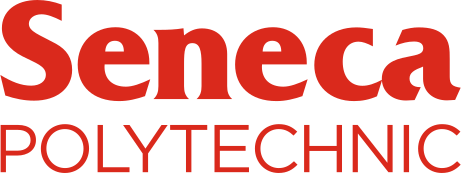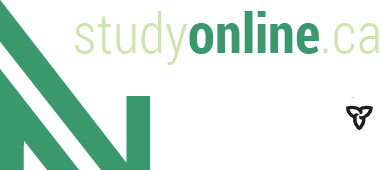Early Childhood Education
Description
The part-time Early Childhood Education Diploma Program emphasizes a learning process which is aimed at developing competent professional Early Childhood Educators with effective verbal and written communication skills. The College continues to provide resources and support to students as they progress through the program and endeavours to ensure currency in the curriculum.
The early childhood education principle of supporting and enhancing the development of the whole child is the basis for this program. This includes the social, emotional, physical and cognitive developmental domains of children from infancy to adolescence. Specific teaching skills and strategies are explored, demonstrated, and practiced in the Seneca classroom as well as in a variety of field placement opportunities.
Research methods and child study techniques are emphasized and integrated into all Early Childhood Education courses. These include observational techniques, assessment, and individual and group planning, curriculum development and self-reflection.
Field placement experiences are provided in a variety of Early Childhood Education environments including nursery schools, day-care centres and various community agencies during day time hours and are a required component of this diploma program. All field placement students must be supervised by a registered Early Childhood Educator.
If you've completed an undergraduate degree or three-year diploma from a recognized postsecondary institution in Ontario or have a degree evaluated for Canadian equivalency, you may be eligible to earn your accelerated Early Childhood Education diploma in three terms.
The early childhood education principle of supporting and enhancing the development of the whole child is the basis for this program. This includes the social, emotional, physical and cognitive developmental domains of children from infancy to adolescence. Specific teaching skills and strategies are explored, demonstrated, and practiced in the Seneca classroom as well as in a variety of field placement opportunities.
Research methods and child study techniques are emphasized and integrated into all Early Childhood Education courses. These include observational techniques, assessment, and individual and group planning, curriculum development and self-reflection.
Field placement experiences are provided in a variety of Early Childhood Education environments including nursery schools, day-care centres and various community agencies during day time hours and are a required component of this diploma program. All field placement students must be supervised by a registered Early Childhood Educator.
If you've completed an undergraduate degree or three-year diploma from a recognized postsecondary institution in Ontario or have a degree evaluated for Canadian equivalency, you may be eligible to earn your accelerated Early Childhood Education diploma in three terms.
ECE grants and OSAP are available
Please note the Early Childhood Education program curriculum has changed for Winter 2024. For students who started the program prior to Winter 2024, please contact Georgette.bigelow@senecapolytechnic.ca for more information.
Entry Requirements
New students should attend an information session and must write the English Assessment test ELL100 or have credit for Communicating Across Contexts (COM101) or its equivalent.
Full-time students wishing to take Faculty of Continuing Education & Training (FCET) courses towards their diploma must consult with their Full-time Program Coordinator to ensure that the courses in which they intend to register will fulfill their academic requirements.
Curriculum
Module 1
ECE110 Visual Art: In Relationship with Art, Story and Materials
ECE112 Wellbeing and Ethics of Care
ECE113 Foundations of Pedagogy and
ECE114 Introduction to Childhood Development
FWK110 Field Placement Visual Art
FWK113 Field Placement Preschool Environment
COM101 OR COM111
COM101 Communicating Across Contexts
COM111 Communicating Across Contexts (Enriched)
Module 2
ECE209 Human Rights and Social Justice in Early Learning and Care
ECE213 Pedagogy and Care in Practice
ECE214 Observation and Documentation of Children's Development
ECE215 Responsive Interpersonal Relationships
ECE216 Field Placement: Pre-School Environments
1 General Education Option 1 General Education Option
Module 3
ECE310 Music and Movement: Experiences Throughout Childhood
FWK310 Field Placement Music and Movement
ECE312 Child Protection: Upholding Responsibilities to Children
ECE313 Pedagogy and Care: Infant and Toddler Focus
FWK313 Field Placement Infant and Toddler Environments
ECE314 Observation and Development: Birth to 3 Years
1 General Education Option 1 General Education Option
Module 4
ECE409 Philosophy and Models of Early Childhood Education
ECE412 Legislation, Advocacy and Social Policy
ECE413 Pedagogy and Care: School Age Focus
FWK413 Field Placement Inclusive Community Environments
ECE414 Critical Perspective of Childhood Disablement
ECE415 Ethics, Professional Practice and Leadership
FWK415 Field Placement Ethics Professional Practice and Leadership
1 General Education Option 1 General Education Option
Please note the Early Childhood Education program curriculum has changed for Winter 2024. For students who started the program prior to Winter 2024, please contact Georgette.bigelow@senecapolytechnic.ca for more information.
Entry Requirements
New students should attend an information session and must write the English Assessment test ELL100 or have credit for Communicating Across Contexts (COM101) or its equivalent.
Full-time students wishing to take Faculty of Continuing Education & Training (FCET) courses towards their diploma must consult with their Full-time Program Coordinator to ensure that the courses in which they intend to register will fulfill their academic requirements.
Curriculum
Module 1
ECE110 Visual Art: In Relationship with Art, Story and Materials
ECE112 Wellbeing and Ethics of Care
ECE113 Foundations of Pedagogy and
ECE114 Introduction to Childhood Development
FWK110 Field Placement Visual Art
FWK113 Field Placement Preschool Environment
COM101 OR COM111
COM101 Communicating Across Contexts
COM111 Communicating Across Contexts (Enriched)
Module 2
ECE209 Human Rights and Social Justice in Early Learning and Care
ECE213 Pedagogy and Care in Practice
ECE214 Observation and Documentation of Children's Development
ECE215 Responsive Interpersonal Relationships
ECE216 Field Placement: Pre-School Environments
1 General Education Option 1 General Education Option
Module 3
ECE310 Music and Movement: Experiences Throughout Childhood
FWK310 Field Placement Music and Movement
ECE312 Child Protection: Upholding Responsibilities to Children
ECE313 Pedagogy and Care: Infant and Toddler Focus
FWK313 Field Placement Infant and Toddler Environments
ECE314 Observation and Development: Birth to 3 Years
1 General Education Option 1 General Education Option
Module 4
ECE409 Philosophy and Models of Early Childhood Education
ECE412 Legislation, Advocacy and Social Policy
ECE413 Pedagogy and Care: School Age Focus
FWK413 Field Placement Inclusive Community Environments
ECE414 Critical Perspective of Childhood Disablement
ECE415 Ethics, Professional Practice and Leadership
FWK415 Field Placement Ethics Professional Practice and Leadership
1 General Education Option 1 General Education Option
General Education Requirements
In order to meet Seneca's breadth requirements for diploma or advanced diploma programs, students must successfully complete at least 3 General Education courses toward their program, satisfying the following criteria:
Completion of 1 course from Arts & Humanities;
Completion of 1 course from Sciences & Social Sciences; and
Completion of 1 course chosen from either category above.
Please note:
Language courses at level 1 and 2 only are accepted as general education credits.
Students that are enrolled in BHS, ECE, SSW, SSWA, SSWG, SSWI or SSIA cannot take COM470 to gain a general education credit as it is too similar to core courses in these program
Note: Check with the institution regarding start/end dates, prices, and delivery method. These may vary according to program, section, and/or semester.
In order to meet Seneca's breadth requirements for diploma or advanced diploma programs, students must successfully complete at least 3 General Education courses toward their program, satisfying the following criteria:
Completion of 1 course from Arts & Humanities;
Completion of 1 course from Sciences & Social Sciences; and
Completion of 1 course chosen from either category above.
Please note:
Language courses at level 1 and 2 only are accepted as general education credits.
Students that are enrolled in BHS, ECE, SSW, SSWA, SSWG, SSWI or SSIA cannot take COM470 to gain a general education credit as it is too similar to core courses in these program
Note: Check with the institution regarding start/end dates, prices, and delivery method. These may vary according to program, section, and/or semester.
Related Courses
- Observation and Documentation of Children's Development
- Responsive Interpersonal Relationships
- Music and Movement: Experiences Throughout Childhood
- Child Protection: Upholding Responsibilities to Children
- Pedagogy and Care: Infant and Toddler Focus
- Observation and Development: Birth to 3 Years
- Child, Family, and Community
- Philosophy and Models of Early Childhood Education
- Legislation, Advocacy and Social Policy
- Pedagogy and Care: School Age Focus
- Critical Perspective of Childhood Disablement
- Ethics, Professional Practice and Leadership
- Introduction to Childhood Development
- Communicating Across Contexts
- Communicating Across Contexts (Enriched)
- Human Rights and Social Justice in Early Learning and Care
- Pedagogy and Care in Practice
Overview

- Institution: Seneca Polytechnic
- Program type: Diploma
- Language: English
- Program Code: ECE
- Delivery Method: Blended/Hybrid Learning
Disclaimer:
Check with the institution regarding start/end dates, prices, and delivery method. These may vary according to program, section, and/or semester.
Check with the institution regarding start/end dates, prices, and delivery method. These may vary according to program, section, and/or semester.
